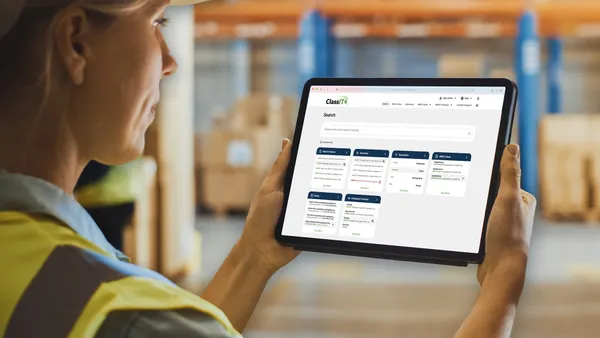Dive Brief:
- Mastercard and Microsoft on Wednesday launched Mastercard Track, aiming to streamline and automate payments between businesses and their suppliers, according to a press release sent to Supply Chain Dive.
- As Mastercard rolls out Track, it will partner with nine B2B networks and payment solutions providers, including Basware and Tradeshift.
- Mastercard said its platform works with account-based, card-based and bank transfer payments, and it also connects purchase and invoice information into the system.
Dive Insight:
On the surface, payments appear to be one of the simplest and most fundamental aspects of a business deal — a supplier provides a good or service, and the customer provides the payment.
If only it were that straightforward...
For a variety of reasons, businesses are sometimes late in paying their suppliers. The delays could be an indication of turmoil within a company — for example, Toys R Us was late in making payments to its suppliers months before the retailer filed for bankruptcy. In other cases, customers purposefully delay payments as a strategy to improve their own cash flow.
Many times, however, the late payment problem is a result of inefficiency within a business.
According to Mastercard, the typical B2B transaction requires 16 manual processes. "The global B2B space remains highly inefficient and paper-based," Michael Froman, vice chairman and president of strategic growth at Mastercard, said in a press release.
This inefficiency costs businesses an estimated $500 billion in administrative expenses each year. Not only are added costs a problem, but consistently late payments can erode the supplier-buyer relationship or even be detrimental to supplier performance.
With its launch of Track, Mastercard and Microsoft offer a potential solution to streamline payments and make the process more efficient. Rather than invoices and payments in disparate systems, all information would be in one place, allowing suppliers better visibility into cash flow.
The question remains whether customers and suppliers will adopt the platform. A key challenge will be how the new system interacts with businesses' existing technologies. A lack of interoperability with ERPs has hindered many companies from adopting electronic payment systems.














